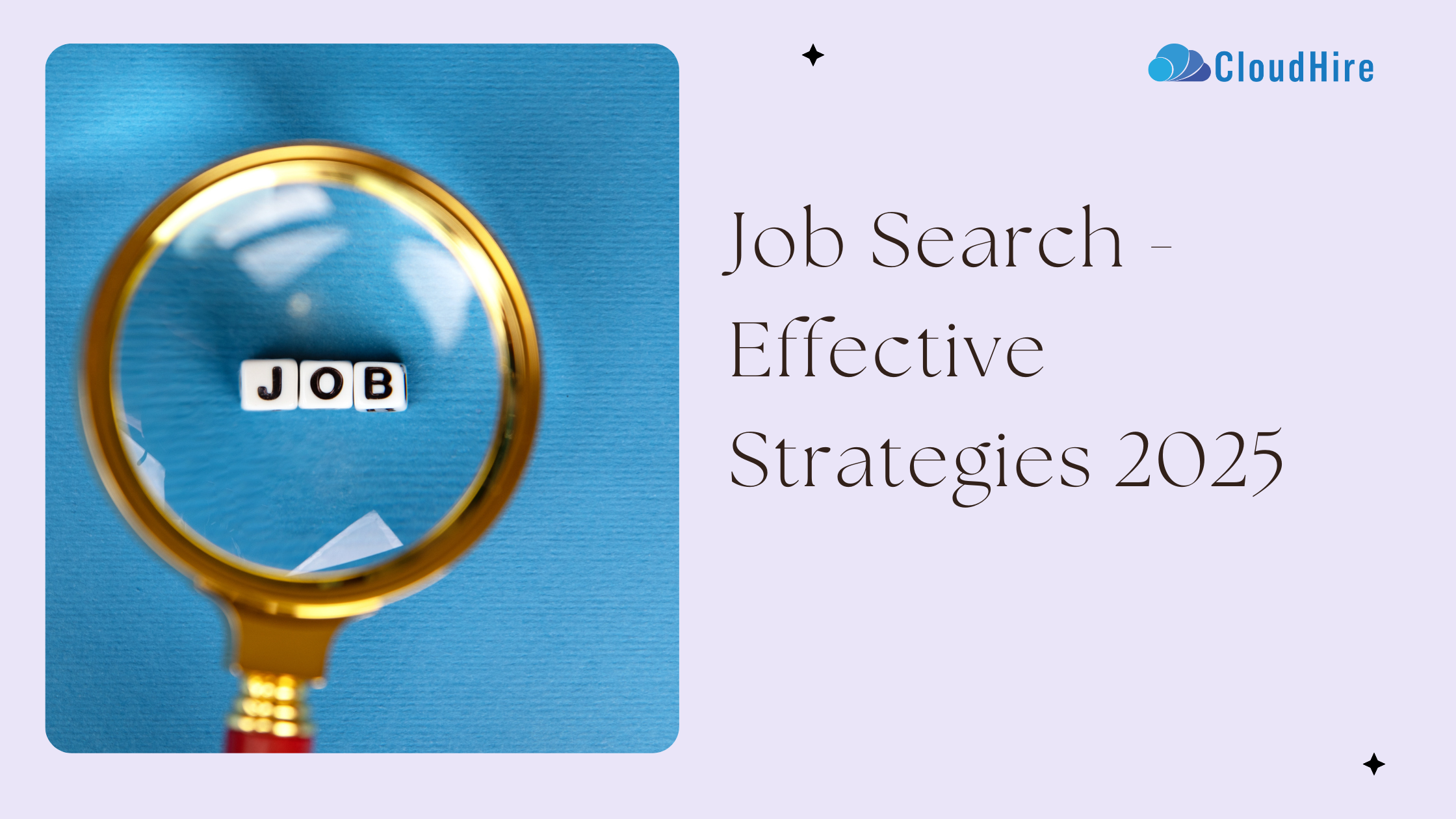Navigating the job market can be a daunting task. It’s a complex landscape that’s constantly evolving, making it challenging for job seekers to keep up.
by Alex Guillaume (https://unsplash.com/@alx2bgx)
Traditional job search methods are no longer sufficient in today’s digital age. Job seekers must employ effective strategies to stand out from the crowd and land their dream job.
This guide aims to provide you with the most effective strategies for job searching today. It covers everything from crafting a winning resume to leveraging social media and networking effectively.
Whether you’re an entry-level candidate, an experienced professional, or someone re-entering the job market, this guide has something for you. It’s packed with actionable tips and insights to help you navigate the job search process with confidence.
So, let’s dive in and explore these strategies to help you secure your next job opportunity.
Understanding the Modern Job Market
The modern job market is vastly different from what it was just a few years ago. Technology and globalization have reshaped how employers seek candidates. Remote work opportunities are now more prevalent, offering flexibility like never before.
Job seekers must adapt to these changes to stay competitive. With industries continuously evolving, identifying growth sectors and emerging opportunities can increase the chances of success. It’s crucial to keep an eye on industry trends and adapt your job search strategies accordingly. Understanding these dynamics positions you better in your search for the right job.
Crafting a Winning Resume and Cover Letter
A standout resume and cover letter are essential tools in your job search arsenal. Tailor them to the specific job you’re applying for. Highlight relevant skills and accomplishments that match the job description.
Avoid generic resumes; instead, customize each one. This approach demonstrates your genuine interest in the position and attention to detail. It’s a competitive job market, and personalized applications are more likely to catch an employer’s eye.
Here’s a quick checklist for crafting effective resumes and cover letters:
- Tailor each resume to the job.
- Use clear and concise language.
- Highlight achievements with numbers.
- Keep the format professional and easy to read.
- Include keywords from the job listing.
Sufiyan Ishaq, Founder and CEO of CloudHire regularly shares tips on his social media handles to help job seekers build winning resumes.
Leveraging Job Search Engines and Boards
Job search engines and boards have become vital tools for job seekers. Websites like Indeed, Glassdoor, and Monster connect millions to opportunities worldwide. These platforms house extensive listings from various industries. Utilize filters to refine your search based on location, salary, and job type. This efficiency saves time by narrowing it down to your ideal match.
Regularly check job boards and set up alerts. This practice ensures you don’t miss new opportunities. Consistent monitoring can increase your chances of applying first. It shows initiative and eagerness to potential employers.
Take advantage of the features these platforms offer:
- Set job alerts for new positions.
- Save searches and bookmark opportunities for follow-ups.
- Use the company ratings to research potential employers.
- Explore salary insights to negotiate wisely.
- Keep your profile updated to attract recruiters.
The Power of Networking: Online and Offline
Networking remains a crucial component of any job search strategy. Whether online or offline, connections matter. Building relationships can open doors to hidden job opportunities that are not advertised.
Leverage online platforms like LinkedIn to expand your network. Engage in industry-specific groups and participate in discussions. This involvement can raise your profile and create lasting impressions.
Do not underestimate the power of face-to-face networking:
- Attend local industry meetups and events.
- Join professional associations to meet like-minded individuals.
- Seek out alumni events to connect with past classmates. Connections built offline can provide valuable insights and referrals that can lead to your next job.
Utilizing Social Media in Your Job Search
Social media can play a vital role in job searching today. Platforms like LinkedIn, Twitter, and even Facebook can be powerful tools. They allow you to connect with industry professionals, recruiters, and potential employers.
Optimize your profiles to reflect your professional brand. Ensure your profiles are up-to-date with relevant skills and experiences. These platforms serve as digital resumes that showcase your capabilities and achievements.
Engagement is key to standing out:
- Share industry news and insights to position yourself as an informed candidate.
- Follow companies of interest to stay current on their opportunities.
- Connect with industry leaders and partake in relevant discussions. Active participation can enhance your visibility and demonstrate your passion for your field.
Attending Job Fairs and Industry Events
Job fairs and industry events offer unique opportunities to network in person. These gatherings bring together numerous employers and job seekers under one roof. Engaging directly with potential employers can make a strong impression.
Prepare by researching the attending companies and planning your approach. Dress professionally and bring multiple copies of your resume. Interact with industry peers, attend seminars, and expand your network. These face-to-face interactions can lead to valuable connections and potential employment opportunities.
The Importance of Informational Interviews
Informational interviews provide insights into an industry or role without the stress of a formal job interview. They allow you to gain firsthand knowledge from professionals and expand your network. These conversations can uncover hidden job opportunities and offer valuable career guidance.
To initiate an informational interview, reach out to people in roles you admire. Prepare thoughtful questions about their career path and industry trends. This approach shows genuine interest and helps build a rapport that can be beneficial in your job search journey.
Tracking Your Job Applications
Keeping track of job applications is critical in maintaining an organized job search. It helps you remember which positions you’ve applied to and follow up appropriately. An effective system minimizes confusion and maximizes efficiency.
Consider using a job search monitor or a spreadsheet to log details. Include:
- Company name and position
- Date of application
- Contact information
- Follow-up schedule
This method ensures no opportunities are overlooked and streamlines your job search efforts.
Following Up on Applications: When and How
Following up on job applications is a vital step in the job search process. It shows employers your interest and enthusiasm. Timing is key; wait about one to two weeks after applying before reaching out.
Reach out via email or phone to express continued interest. Be polite and concise, inquiring about the status of your application. A well-timed follow-up can set you apart from other candidates and reinforce your commitment to the role.
Personal Branding and Professional Online Presence
In today’s job market, personal branding is crucial for a successful job search. A strong personal brand sets you apart from others. It reflects your skills, values, and unique qualities.
Your online presence should support your personal brand. Start with a professional LinkedIn profile. It’s often the first place recruiters search.
Here are some tips for building your online presence:
- Use a professional photo and headline.
- Highlight your achievements and skills.
- Engage with industry-related content and connections.
Consistent online branding strengthens how employers perceive you, enhancing your job prospects.
Continuous Learning and Skill Development
Continuous learning is key to staying competitive in the job market today. Industries evolve rapidly, demanding up-to-date skills and knowledge. Prioritizing skill development enhances your employability and widens your job opportunities.
Pursue certifications, workshops, and online courses relevant to your career. This proactive approach shows potential employers your commitment to growth. Skill development also boosts confidence in your abilities, which is invaluable during job interviews.
Adapting to Global Job Search Trends
The job market is increasingly globalized, making it vital to adapt to worldwide trends. Understanding these trends can enhance your job search strategies. Companies now seek candidates with cross-cultural communication skills and international experience.
Stay updated with global job market insights to identify emerging sectors. This knowledge can guide you in targeting industries with growth potential. By adapting your approach to fit global trends, you position yourself as a versatile and desirable candidate.
Conclusion: Staying Resilient and Adaptable
In today’s dynamic job market, resilience is a valuable trait. Job searches can be challenging, but staying positive is essential. A growth mindset helps you learn from every experience, turning setbacks into opportunities for improvement.
Adaptability is another crucial skill in your job search arsenal. Stay open to new ideas and methods to remain competitive. Embrace change as it brings unique opportunities and potential for growth.
Successful job searching requires a proactive and flexible approach. By leveraging the strategies outlined, you’ll enhance your chances of securing your next opportunity. Stay focused and persistent, and the right job will come your way.









